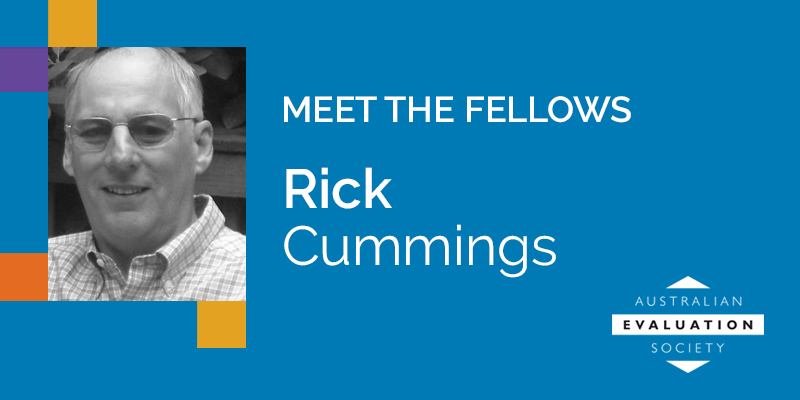September 2020by Anthea Rutter Rick has been in the field of evaluation for over 40 years. He has been President of the AES and conference convenor. These days, he balances work as Emeritus Professor at Murdoch University, running a small consultancy, providing training in evaluation, chairing AES Fellows and participa...
Welcome to the AES Blog
by Kwadwo Adusei-Asante
COVID-19 has changed our way of life, including how we evaluate programs. The pandemic has rendered conventional evaluation approaches difficult to execute, and programs have faced new delivery challenges. These are challenging times for organisations that are required to deliver programs and measure agreed outcomes for their funders.
This blog draws on my experience with Constable Care Child Safety Foundation in WA. During these uncertain times, we have been forced to think outside the box and adopt new ways of doing evaluation. Our focus has been on capturing evaluation data when ‘what works’ is preferred over ‘the ideal’.
by Renée Madsen
Regionally-based evaluators – those living and working outside major cities – are a vital part of the evaluation ecosystem. They bring the benefits of evaluation to areas where essential services can be thinly spread and under pressure to deliver the best possible results with limited resources. Regionally-based evaluators ensure that evaluation is accessible to those who would not otherwise be able to engage with evaluation expertise, and we represent the profession in areas it would not otherwise reach.
by Anthea Rutter
Sue Funnell was one of the early trail blazers in evaluation methods. By her estimate, Sue has been in the profession for over 43 years. Over this time, she has held a number of roles in evaluation, including as the director of her own consulting company. She was a founding member of the AES, had two terms as President, was chair of the Awards Committee, and a presenter and trainer.
by AES Relationships Committee
The global scale and speed of disruption caused by the COVID-19 pandemic is unprecedented in our lifetimes. The pathway to recovery and management of COVID-19 is expected to be complex and challenging, with significant long-term implications for individuals, organisations, governments and the country.
The coordinated national response in Australia has so far been successful because the best available data and evidence has significantly influenced decision-making. The evidence-informed approach that has served us well to-date remains equally critical going forward.
by Eleanor Williams
COVID-19 has, for many, been a time of adaptation and creation of a new sense of normality. As we move away, gratefully, from local crisis management, we have the opportunity to reflect on not only our own resilience through this time, but what we have learned and how we have adapted through adversity.
Eleanor Williams from the Centre for Evaluation and Research Evidence, Victorian Department of Health and Human Services and the Australian Public Sector Evaluation Network shares her reflections on Evaluation Adaptation through COVID-19.
by Anthea Rutter
Zita has been in the evaluation profession for over 26 years and has taken a number of roles over that period. She has been an evaluation lead, consultant and lecturer in evaluation. Zita was introduced as a Fellow in 2013 at the International Evaluation Conference held in Brisbane.
by Jade Maloney
Over the last couple of months, evaluators around the world have been grappling with the question of whether and how we evaluate in the COVID-19 context. What can and should be done now, and what should wait? How can we be most useful?
For a recent online session with AES members, which Keren Winterford, Greg Masters and I hosted on behalf of the NSW Committee, I rounded up a range of reflections on these questions to prompt discussion.
by Anthea Rutter
Jerome Winston’s career spans over 45 years. He has fascinating insights into how evaluation was viewed in the 70s, which reminded me that back then, evaluation was not viewed as a separate profession, but as part of other disciplines.
by Anthea Rutter
Gill was named an AES Fellow in 2018, and I was pleased to introduce her at the AES conference in Launceston that year. We started with what brought her into the field of evaluation, and what it was about realist methodology that not only piqued her interest but now defines her as a practitioner.

